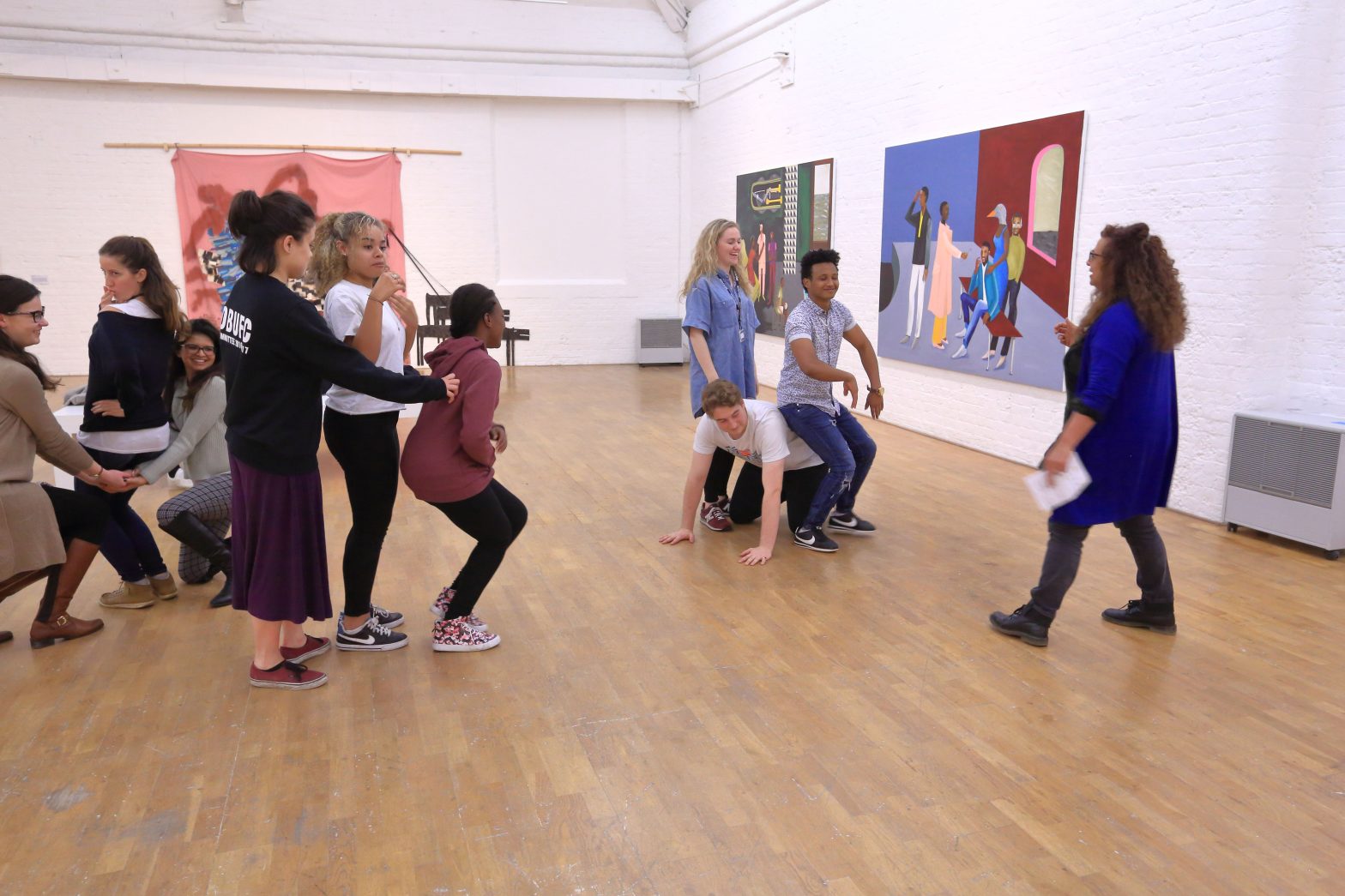By Yasmin Sidhwa, Artistic Director, Mandala Theatre Company
A few months has passed and we have had a chance to reflect on Mandala Theatre Company’s Residency at Modern Art Oxford. We ran a 7-week course using the gallery’s exhibition of work by artist Lubaina Himid: Invisible Strategies as a stimulus for creating monologues in response to the exhibition. Working with diverse participants age 15 – 25 years from Oxford, the group of young people created a promenade performance around the exhibition for the public.
The performance comprised 13 performed monologues, duos, trios and two whole group pieces. Each piece was written and created by the participants.
The process asked the young people to look at Lubaina Himid’s exhibition through the lens of identity and belonging. The first week involved the group being taken around the whole exhibition and reflecting on it, as well as being asked to choose the one picture or object that had the most impact on them as individuals and to be able to articulate why.
As a way in to responding to the exhibition it was essential that the young people had a relationship to it, that they felt affected by it in some way and began working creatively having chosen the piece that they felt most resonated with them.
Sometimes we began by recreating a painting and placing the participants into the image, for example, the paintings in the Plan B series. We physically placed empty chairs in front of the paintings, and asked the group to imagine someone who might be in this empty room.
Each participant had to decide where they might be, why they might be there and how are they feeling? For each character, the group was asked to imagine what the character was seeing; whether they saw the room as being empty, or are they are ‘seeing’ people who used to be there? Who did they feel should be there, or who their character wishes were there?
At first, we played this out as an improvisation, to create dialogue, with specific ‘rules’ of how many other characters they could talk to, who they imagined inhabited their ‘world’.
They were also all given a creative writing task to write a letter to someone who their character was thinking about or seeing in the room. This then created the basis of one of the two group pieces.
What was incredible, not only for the exercises focused on Plan B, but the young people’s deep and profound reflections and creativity in response to the various paintings, sculptures and artefacts that comprised this amazing exhibition of Lubaina Himid’s work. Throughout the process the participants created a diversity of characters, an intensity in their writing and an emotional response that was deep and personal.
It was clear that the young people were affected by the deep-rooted anger, sadness and political awareness that was the essence of the Invisible Strategies Exhibition. A booklet is being produced of Mandala’s Theatre Residency at Modern Art Oxford, featuring all the monologues and creative writing produced by the young people involved. Mandala and the gallery aim for this to be the start of an ongoing partnership, as for both organisations it offers a dynamic way in to creativity through visual, written and performing arts.
We end this blog, with one of the letters written for the Plan B exercise by 15- year-old Mukhahang Limbu:
Dear Mummy,
I’m looking at the sea again, and I think of you
A spider has caressed my bone again, and has left its milk to sit on my shoulder.
I hurt, and I think of you.
I went back in there again so I think of you.
I’m sorry I couldn’t help it. I felt my belly being pulled
Like ripped strings, and I thought that if I didn’t go in more – I
would walk again,
With mangled insides hanging out….
I am so sorry.
There were no arms around me in there, only air,
There was no smell of coffee beans and community that
Melts the thirst, only air.
There was no you, Mummy, only air.
I built walls but they climbed over.
Here I cannot wash my hands in my soul.
But Mummy…
Did you ever get sick of looking at the sea?
Did you ever get sick of looking, only, at the sea?
